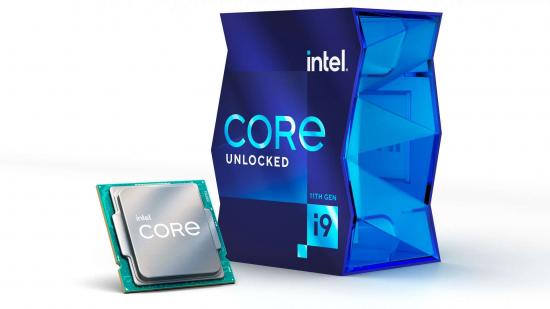Intel’s 11th generation Rocket Lake-S gaming CPUs are now out in the wild, but how does the last of its 14nm chips fare against the previous generation? This time around, Intel has backported the 10nm arrangement we previously saw on Ice Lake mobile processors, which means it’s taken the core design of its smaller fabrication and stuffed it into the larger process.
The flagship i9 11900K carries a swollen $539 MSRP compared to the previous generation’s $488. It also has just eight cores, 16 threads, and a 3.5GHz base frequency, which looks a lot less powerful on paper than the 20-thread i9 10900K with a 3.7GHz clock. This doesn’t paint the whole picture, however, as Intel claims the 11900K does, in fact, have a 19% IPC (Instructions Per Cycle) gain over its predecessor.
Now that the chip is in the hands of reviewers and customers across the world, Intel’s claims are being put to the test in the best PC games and benchmarks. It looks like there’s both good and bad news to come out of the new chip.
Depending on the games you play, the new 11900K could help you boost fps. Here’s a roundup of reviews for the Intel Core i9-11900K:
- The Verge: Boosts Microsoft Flight Simulator FPS by 20% / High power draw
- PCMag: Great single-threaded performance / Runs hot compared to AMD equivalents
- PC Gamer: FPS boosts in games / Outperformed by 10900K in multi-threaded applications
- KitGuru: PCIe 4.0 support for first time / Too expensive compared to AMD
- Guru3D: Great gaming performance / Heat issues from 14nm process
From the reviews, it looks like the 11900K is a solid processor, if you’re using your PC to solely play games with welcome FPS boosts in many titles, particularly in CPU-heavy games such as Microsoft Flight Simulator. The PCIe 4.0 support also means you can run the best SSD for gaming on an Intel rig for the first time.
But, thanks to the reduced number of cores, the older 10900K beats its new sibling in multi-threaded workloads. If you carry out intensive workloads such as video or photo editing, you’d be much better off with the cheaper 10900K while still getting better performance.
